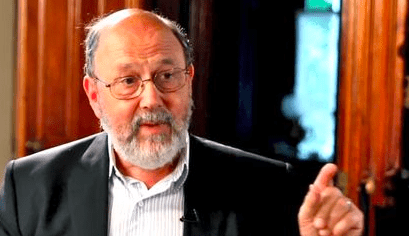 How often do you hear a sermon at your church that develops what we find in the Creed: “I believe in Jesus Christ … who will come to judge the living and the dead, [and in] the resurrection of the body, and the life everlasting”?
How often do you hear a sermon at your church that develops what we find in the Creed: “I believe in Jesus Christ … who will come to judge the living and the dead, [and in] the resurrection of the body, and the life everlasting”?
This theological creed affirms a constant theme of the Bible: God will judge, and God’s judgment results in redemption or destruction.
[Personal note: When I was a PhD student I met Stephen Travis, who was teaching at that time at St John’s Nottingham, he was helpful to me in the few brief conversations we had, I have followed his writings since those days, and I have great respect for him as a Christian and scholar.]
Our culture challenges this belief, and Stephen Travis, in his essay “Preaching Hope and Judgment,” in Ian Paul, D. Wenham, Preaching the New Testament, is an expert candidate to inform us about how to deal with these topics. Why? Travis has been studying and writing about judgment since the 70s. What are the challenges?
1. God is a distant memories and absolutes, or at least clear moral teachings, are a distant memory.
2. Scientific materialism rules the meta-stories.
3. Previous generations overbaked the bread and some teachers lack confidence in the biblical themes.
So what can we do?
Teach the great truths about eschatology.
Inspire action in light of them.
Stir the imagination, as CS Lewis did in The Last Battle.
But that leads to some method questions and some stances:
1. Come to terms with eschatological language as imaginative yet true.
2. Come to terms with some crucial passages.
3. Come to terms with Christian options in eschatological discussions.
What are the major themes to be taught and preached?
1. Who will come again?
2. For what purpose: to complete his work, to judge, to bring the new heavens and the new earth, and resurrection.
3. When will he come? Soon and sudden balanced by ignorance and patience.
4. How should we live?
Now what about judgment? Here are the themes for Travis:
1. Universal judgment: all will be held accountable.
2. The outcome of the judgment is inherent in the deed. It is the destination of a character formed.
3. Criteria in the Bible: faith in Christ tied to works manifesting that faith.
4. The outcome is destiny. The debate about the nature of hell can distract from the reality of a destiny and the possibility of being cut off.
5. Will all be saved? Travis says universalism distorts God’s love into coercion.











